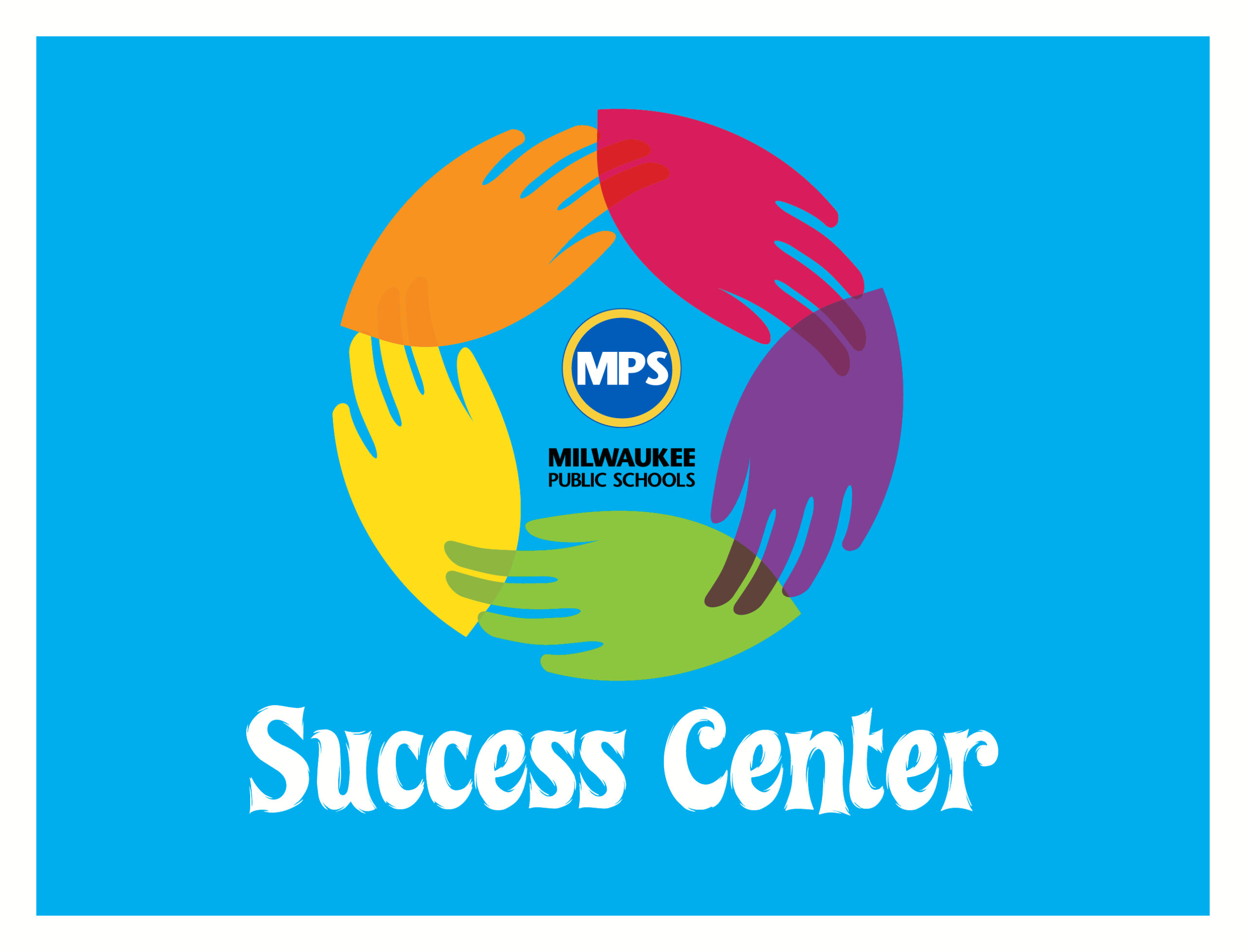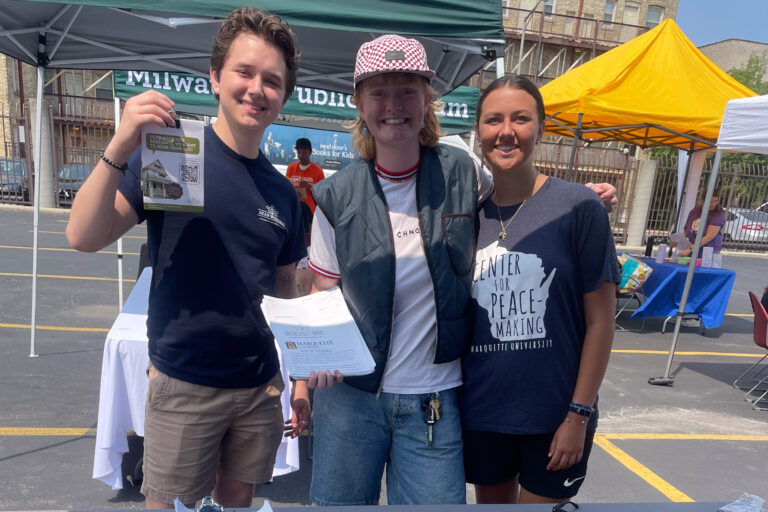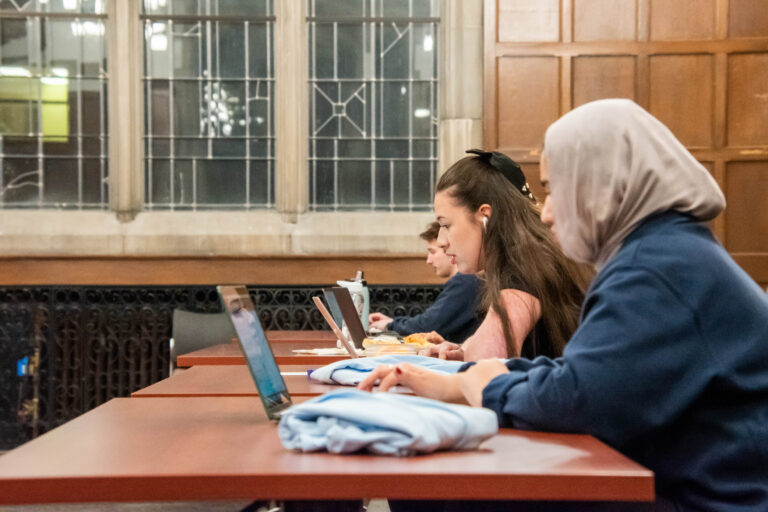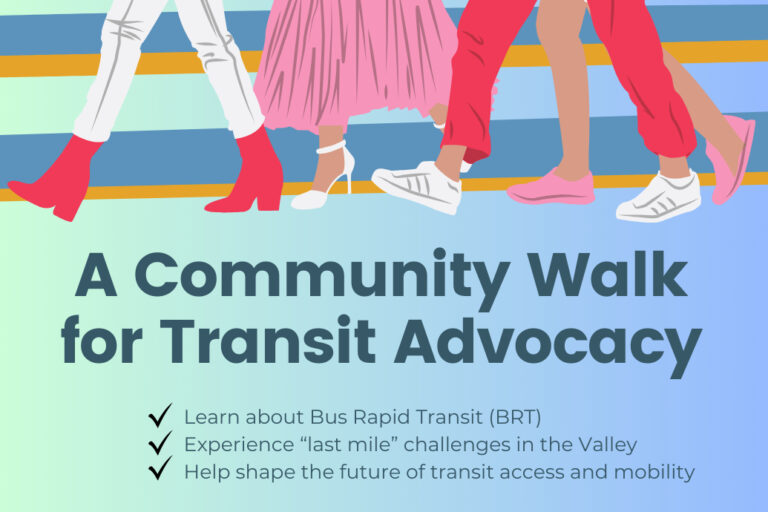The Center for Peacemaking in the Klingler College of Arts and Sciences at Marquette University unites student programs, faculty research and community initiatives to achieve three goals: shape youth and young adults into nonviolent peacemakers, resolve conflict and promote human dignity, and construct strong communities.
Peace Works is a nonviolence, peace education program spearheaded by the Center for Peacemaking, that utilizes a social-emotional curriculum, restorative practices and peer mediation to teach youth communication skills and problem-solving through practical skill building exercises, group interaction, role play, games, reading, writing, art and reflection.
In 2019, the Center for Peacemaking was selected to collaborate with Milwaukee Public Schools (MPS) to provide Peace Works education to students at MPS’ new Success Center. The Success Center was built to support students in grades 4-12 whose behavioral challenges create a significant barrier to their success, happiness and well-being at school.
Sherri Walker is the center’s assistant director. Here in a Q&A, she discusses Peace Works, the organization’s impact, the 4 Schools Initiative, the Success Center and more.
How does Peace Works operate?
Peace Works provides strategies that allow students to respond to indignities and obstacles in peaceful and self-protective ways. Peace Works draws upon research-based strategies to provide a common language and skill set for school staff and students. The Peace Works curriculum is composed of 30 different lessons, including topics on thought-feeling behavior, grounding techniques, perspective taking, values and empathy. Peace Works staff works directly with students, teachers and staff to teach students important academic and social skills, including increasing young people’s capacity to identify and resolve conflicts nonviolently.
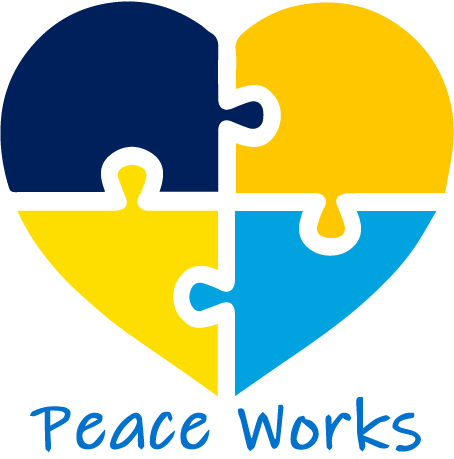
Why is there a need for Marquette University Peace Works?
In Milwaukee, many children experience high rates of poverty, academic challenges and violence.
These factors increase the risk of becoming victims and/or perpetrators of violence as well as the potential of compromised mental health, which can create barriers to learning and lead to challenges when interacting with classmates and school staff. Without intentional collaboration among youth, schools, families and communities, it is difficult to create systemic change to transform attitudes and actions. Violence reduction and prevention require building strong communities in which students, teachers and families take an active role and increase their capacity to prevent violence. Teachers serve as critical frontline workers in supporting the mental health of students. Peace Works partners with schools to teach students and support educators in fostering new skills, knowledge, and behaviors that increase resiliency and self-efficacy in young people.
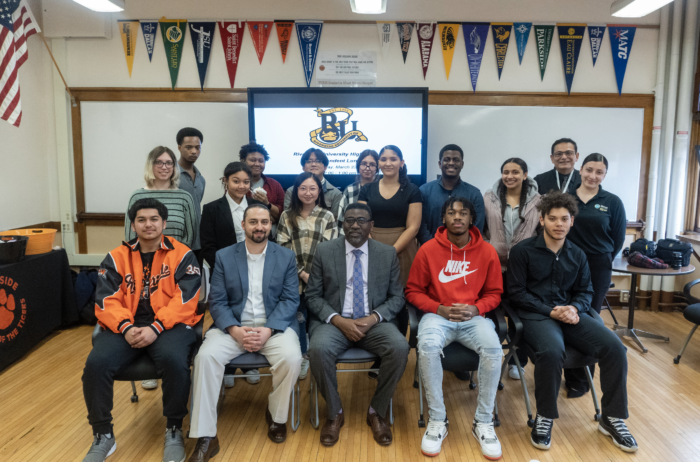
What are the benefits of Peace Works?
Student instruction: Students develop skills through instruction in either a classroom or small group setting. Peace Works can be implemented as a standalone course or integrated into an existing course (such as civics, health, religion or homeroom).
Integrated programming: Students are provided with opportunities to apply Peace Works skills, including peer mediation programs and student-family activities.
Family/guardian support: Nonviolence is fostered through active, pragmatic, and positive engagement with students and families.
Professional Development: Faculty and administrators receive training to reinforce and model Peace Works practices in their classrooms and school.
Peace Works has also collaborated with partner schools, MPS, to support students and families with curricula and mental health services (individual and family, art, yoga and music therapies) housed in one location – the MPS Success Center. The ultimate goal is to bring this type of program to individual schools so all students and families will have access to the services they need. To this end, a pilot initiative will begin this fall.
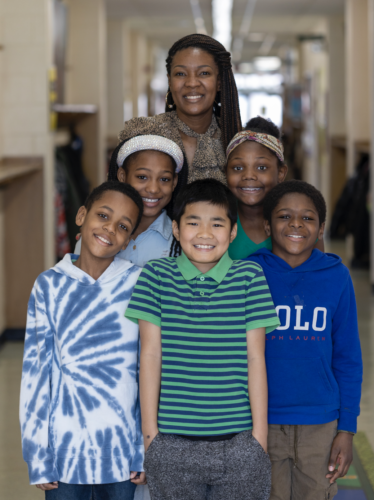
What are the demographics of the MPS Success Center and what are some of the positive outcomes of the center and its programming?
MPS Success Center demographics include 32% Hispanic/Latino, 60% Black/African American, 6% White and 2% Native American.
All students gain a positive perception and recognize benefits of the Success Center, as well as develop positive relationships with adults who prioritized listening.
Students also show they need adults who seek to understand them.
Of the students who completed the exit survey in 2021, 93% agree their time at the Success Center has been helpful.
What has been the response of parents of students who utilize the Success Center?
100% of parents/guardians who also completed the exit survey agree their student’s time at the Success Center was helpful.
Family engagement takes place from the point of intake, during each student’s stay and post-transition. Families expressed gratitude for the Success Center believing in their children and providing strategies to help them de-escalate when they are experiencing challenging behavior.
What is the 4 Schools Mental Health Initiative and how does Peace Works come into play?
The 4 Schools Mental Health Initiative, a pilot program in four schools—two MPS (Metcalfe School and Marvin Pratt Elementary School) and two charter (Howard Fuller Academy and Milwaukee Academy of Arts and Sciences), focuses on addressing the mental health of students associated with, or exacerbated by, COVID-19. The 4 Schools model is family-centered and designed to improve resiliency, relationships and social-emotional outcomes.
This school year, 4 Schools will continue to implement the delivery of psychoeducational services in the classroom and provide direct Peace Works support at each school and to dedicate office hours in each school for therapists to provide clinical mental health services and family coaches to provide family support. We also plan to provide professional development in delivering multi-modal psycho-educational interventions coordinated with school and district leaders and based on assessment data.
